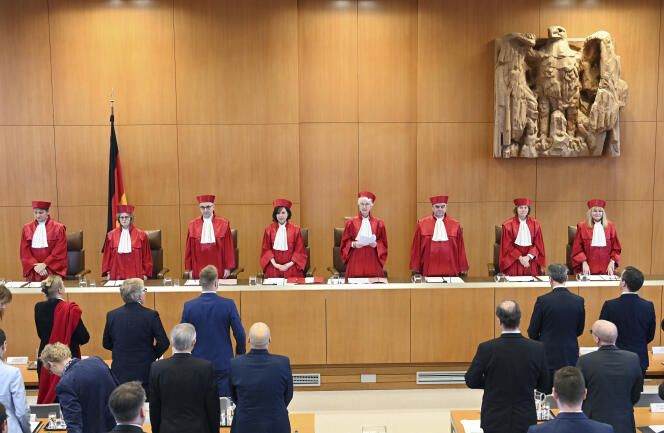The snub could not be more scathing for the government of Olaf Scholz. The German Constitutional Court invalidated, on Wednesday November 15, a controversial budgetary maneuver, carried out by Berlin at the start of the legislature, to finance its reforms. At the end of 2021, the government used a budgetary balance of 60 billion euros, originally intended for the fight against the Covid-19 pandemic, to supply a “transformation and climate fund”. Denounced by the Christian Democratic opposition as a “budgetary sleight of hand”the operation was declared unconstitutional by the judges in Karlsruhe.
The highly anticipated decision has major consequences for Germany. Immediately, it plunges the government of Olaf Scholz, already very divided on budgetary issues, into a political crisis. The credibility of the Minister of Finance, the liberal Christian Lindner, herald of budgetary discipline, is damaged. Expenditure incurred on the basis of the fund, which has been used to finance massive subsidies and decarbonization plans for two years, has its legal basis declared null. On Wednesday, Economy Minister Robert Habeck nevertheless stressed that all financial commitment promises would be kept. Mr. Lindner announced the development of a new financial plan.
In the longer term, the decision constitutes a call to order from the constitutional judge against a certain German creativity in budgetary matters for three years, which had allowed it to circumvent its own rules on debt. Since 2011, Germany has, in fact, been bound by the constitutional mechanism of the “debt brake”, which caps the annual budget deficit authorized by the federal state at 0.35% of gross domestic product (GDP), except in the event of a crisis. This exceptional clause was used at the time of the Covid-19 crisis: thanks to the lifting of the system, between 2020 and 2023, Berlin was able to borrow well beyond the limit authorized in normal times to finance expenses linked to the pandemic…, but not only that.
A certain hypocrisy
The famous “transformation and climate fund”, created with 60 billion euros borrowed in 2021 to deal with the consequences of the health crisis, has thus become the main investment tool of the coalition. This change of destination was validated by the deputies in 2022, retroactively. The judges nevertheless ruled that it was unconstitutional, recalling that it is not legal to borrow money for a certain cause and then use it for another reason. That “special funds” cannot be used to circumvent the debt brake, and that“under the principle of annuality, appropriations can only be used until the end of the budgetary year”.
You have 45% of this article left to read. The rest is reserved for subscribers.
